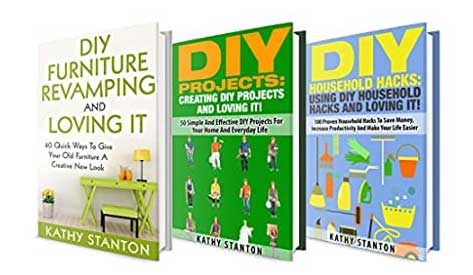Everyone knows that when you are able to complete a home improvement project yourself instead of hiring someone to do it for you that you will most likely save a great deal of money. However, there are many instances where DIY projects aren’t approached in the right manner and are thus far more expensive in the long run.
It is important to keep a few things in mind if you want to ultimately save money on your project while still winding up with an end result that you are happy with. The good news is that with the right about of planning and a bit of consideration, you can find yourself with a home improvement project that you completed all on your own without breaking your budget.
Here are three money saving tips to help you in your DIY endeavors.
1. Shop the Right Way
Once you start getting into your DIY project, you will quickly discover that one of the things that is going to cost you the most is going to be the material and supplies that you need for your project. Depending on what you are undertaking, you might need to purchase or rent specialty tools and invest in big-ticket items like flooring and pricey design features. However, just because you know you are going to be making an investment in such things, that doesn’t mean that you have to spend more than is necessary.
When you take the time to shop the right way for your supplies and materials, you will be surprised at how much you can actually save. For instance, compare the costs of the items that you need at various stores so that you can find the best deals. You can also be on the lookout for sales and promotional offers. You might even want to take advantage of a Lowes coupon to save on the things that you need from your favorite hardware store.
2. Know When You Shouldn’t DIY
Just because you have the desire to complete a home improvement project without bringing in expert help, that doesn’t mean that you should tackle projects that are out of your league. When you take chances and overestimate your abilities, you can wind up having to pay more to have things redone correctly in the end. Moreover, taking on more than you are comfortable with can be dangerous when you bring things like electrical wiring and plumbing into play. DIY is a great option as long as you know when you shouldn’t DIY.
3. Stick to Your Budget
Anyone who has ever tackled a DIY project will tell you how important it is to stick to your budget. While you should give yourself some realistic wiggle room when you actually draw up your budget, you want to look for ways to reasonably cut back instead of using all of the money that you can. Make sure that you are disciplined enough to stick to your budget before you undertake any major projects.







